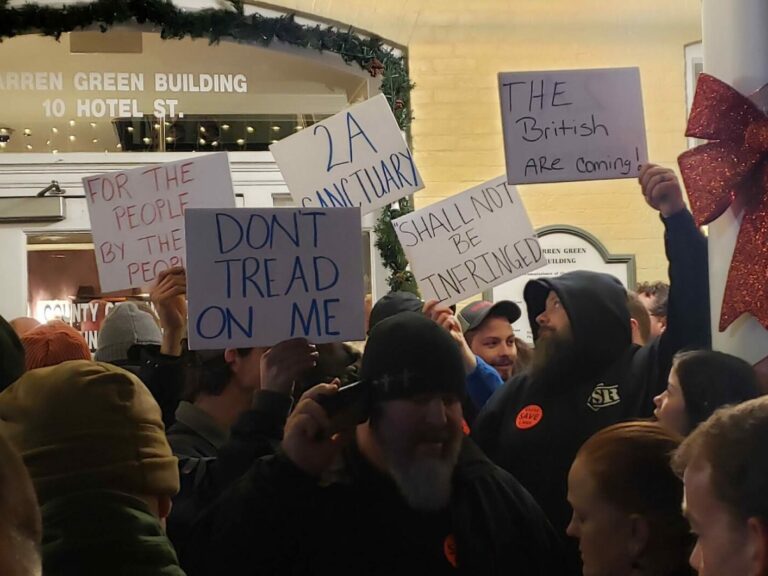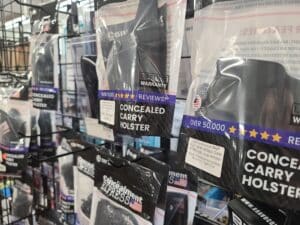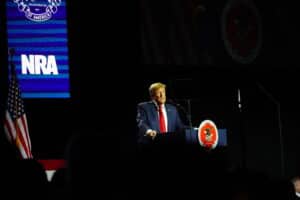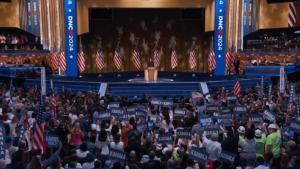The prospects for new gun restrictions took a hit on Tuesday as Republicans swept the top elected post in the state.
Republicans won the races for governor, lieutenant governor, and attorney general, according to The Cook Political Report‘s Dave Wasserman. That represents a total reversal from just last year when Democrats controlled all three. It also represents a reversal of fortunes for gun-control proposals Democrats had pursued since they took complete control of the state government in 2019. The state has gone from considering confiscating AR-15s, to electing a statewide candidate who held one on her campaign posters in just two years.
The victory of Republican Glenn Youngkin over Democrat Terry McAuliffe in the governor’s race will likely be extrapolated by many commentators as a bellwether for the 2022 federal midterm elections. Still, the immediate impact on the state’s gun politics is more pronounced.
The Republican wave comes just a year after Democrats passed a package of gun-control bills that added background check requirements to private sales of used guns and allowed localities to restrict where Virginians can carry firearms. It also comes after tens of thousands gathered at the state capital to protest gun restrictions as the culmination of a grassroots movement that spread Second Amendment sanctuary policies to over 90 percent of Virginia counties.
McAuliffe’s campaign website touted an “assault weapons” ban, which would include popular guns such as the AR-15, as the next step for Democrats to pursue if he was elected. By contrast, Youngkin’s campaign told The Reload in October he opposed the idea. Republican Winsome Sears, the first black woman to win statewide office in Virginia by capturing the lieutenant governor race, went a step further than Youngkin and made campaign signs featuring her holding an AR-15.
Guns were largely absent from the campaign for much of the race. Youngkin focused primarily on local school policy while McAuliffe attempted to paint him as an acolyte of former president Donald Trump (R.). However, the issue rose to prominence as election day neared.
In late September, a shadowy PAC with connections to a liberal consulting firm was reported to be behind ads attacking Youngkin for not seeking the endorsements of the National Rifle Association or the Virginia Citizens Defense League (VCDL). The ads targeted Republican-leaning areas of the state in an apparent attempt to dissuade gun owners from turning out to vote. In October, it was revealed Virginia’s largest power company Dominion Energy was the funding source for those disingenuous ads.
While Dominion attempted to backtrack and demand its donations back, it quickly became apparent the tactic had backfired. Instead of stunting enthusiasm among gun-rights activists, the resulting backlash energized them. VCDL, which had publicly criticized Youngkin for not seeking its endorsement, mobilized its members to protest Dominion’s meddling and turn out to the ballot box.
Video of McAuliffe attacking gun shows and describing how he used a unilateral move by Attorney General Mark Herring (D.), who also lost re-election on Tuesday, to reject out-of-state gun-carry permits as a political bargaining chip surfaced in October as well. It featured McAuliffe declaring gun shows “the worst thing we have” and described how he hoped a 2016 gun package he negotiated would create a secret liability for gun sellers. Youngkin’s campaign said the comments were evidence McAuliffe is “the most anti-Second Amendment politician in America.”
With the clean sweep of the top positions in state government, Republicans will likely be able to block any attempt to enact further gun restrictions for the next several years. The party is also in reach of flipping control of the House of Delegates, but the outcome of several races remained unclear at press time.
Still, even if Republicans capture control of the House, Democrats will maintain a slim majority in the state senate which isn’t up for re-election until 2023. That could limit the party’s ability to go beyond blocking new gun-control measures and towards passing pro-gun reforms. It also leaves open the possibility of compromise bills that could move the needle in either direction on gun regulations.
Either way, the recent move towards stricter gun laws in Virginia was clearly disrupted by the outcome of Tuesday’s elections.






